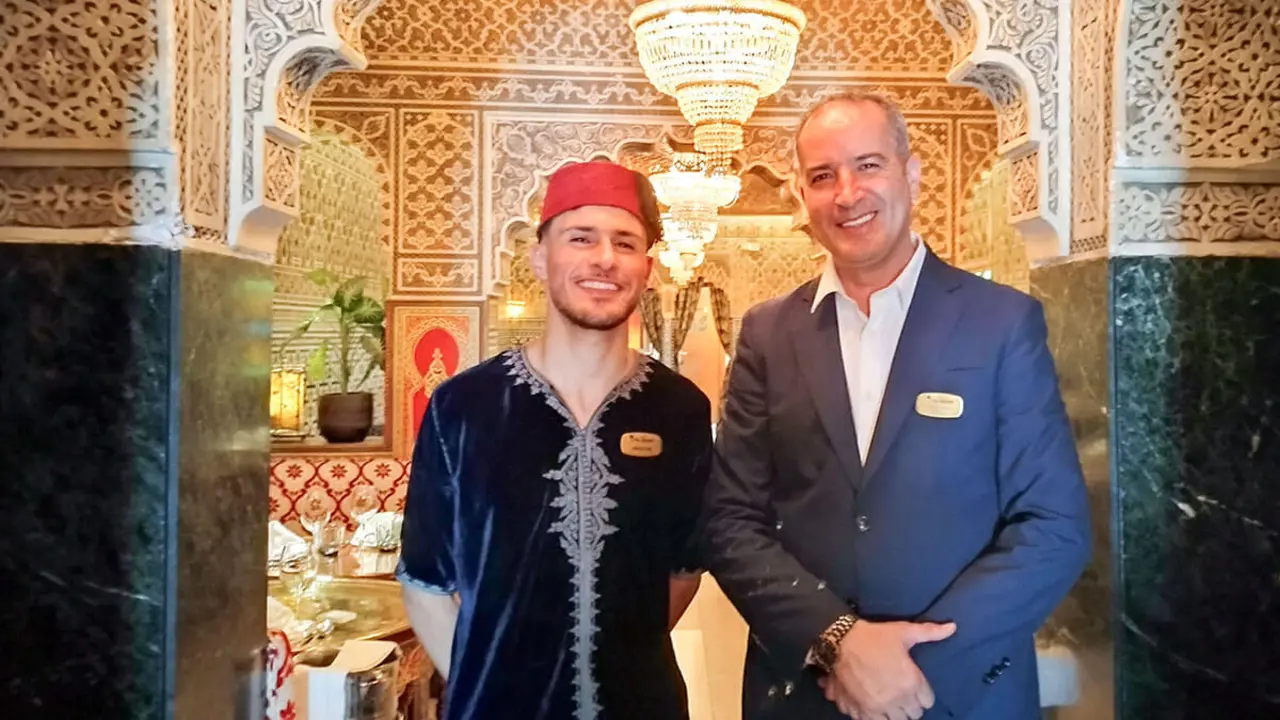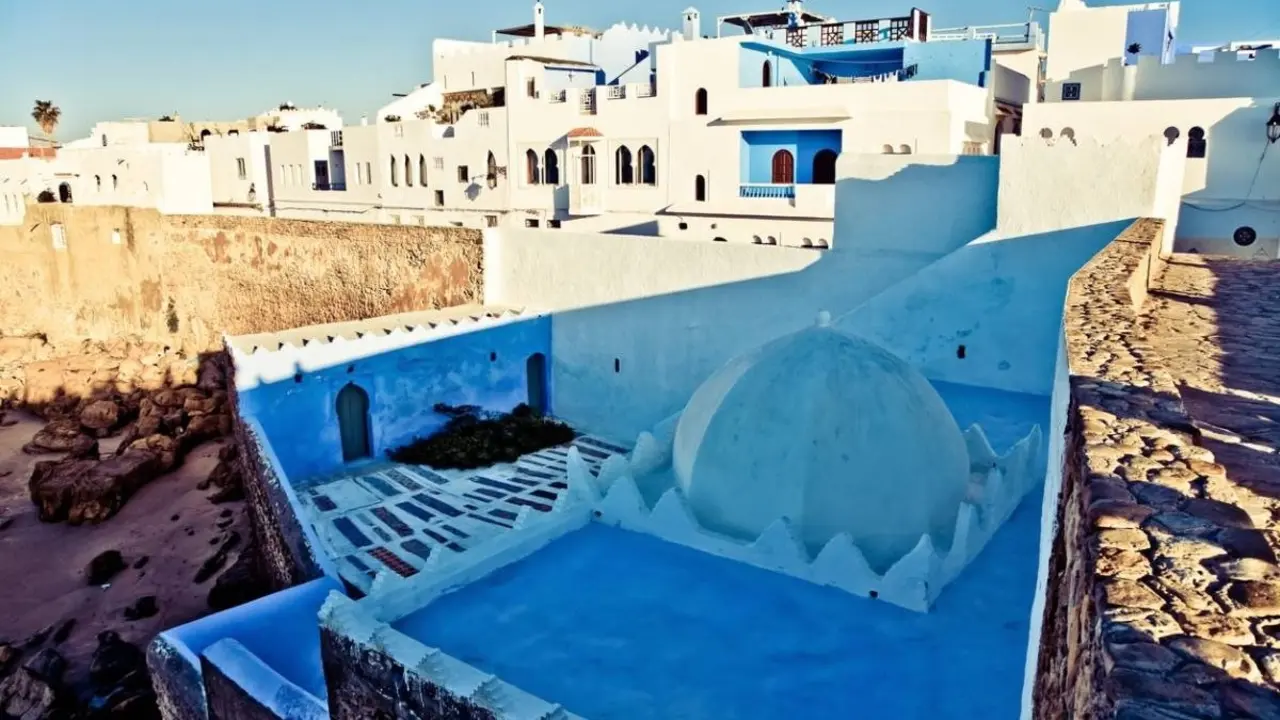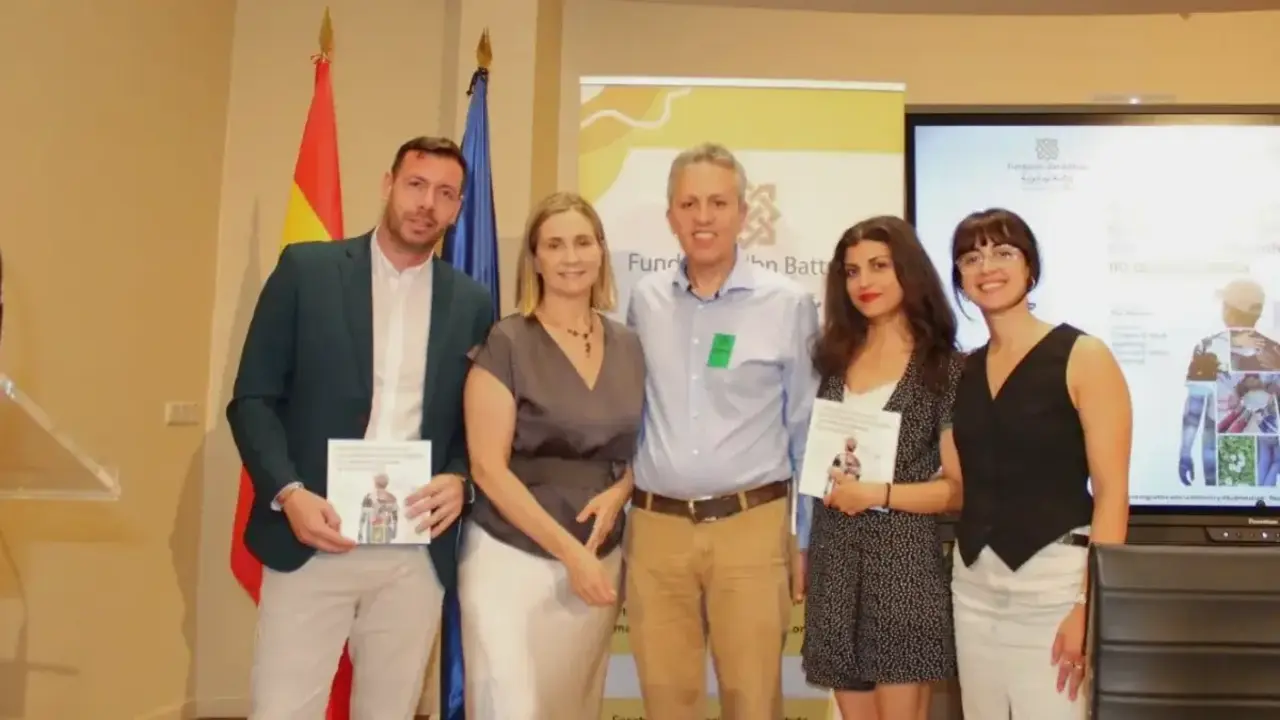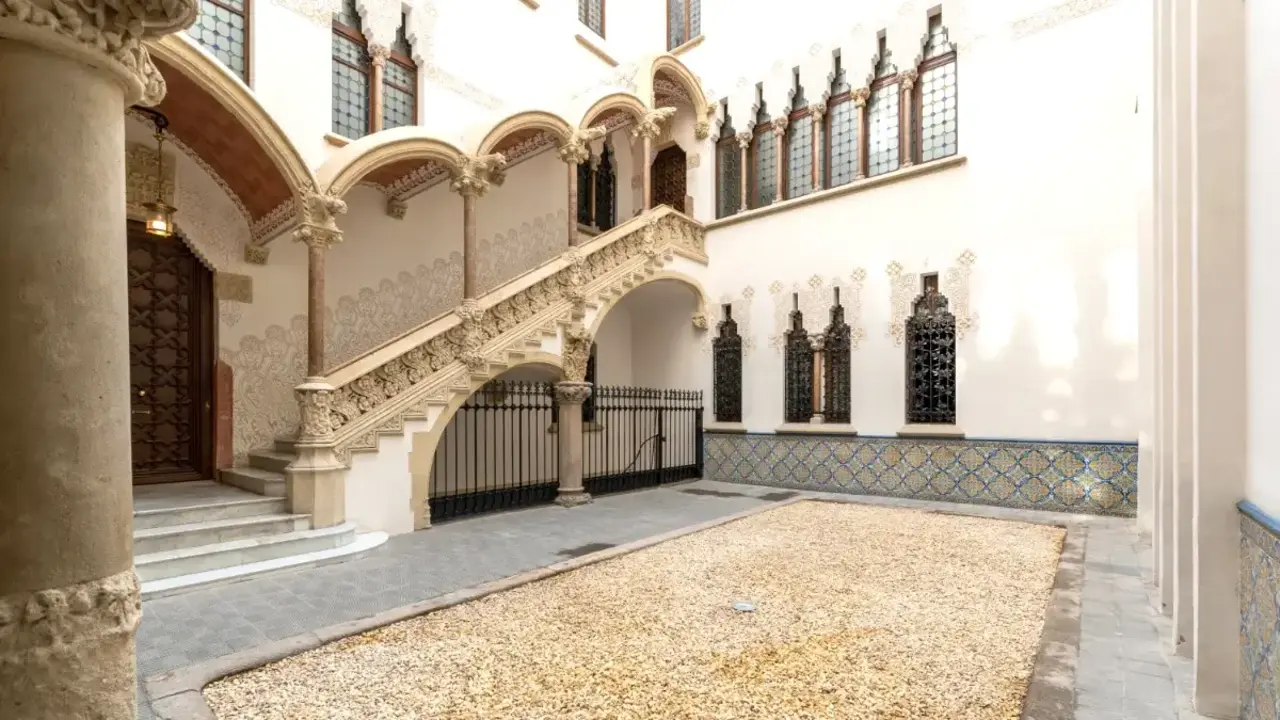Caddy Adzuba: " The government didn't do it. Civil society prevented the balkanisation of Congo"

"We are here among comrades and that is why we are going to tell each other the truth". A large group of journalists and international aid workers listen attentively to Caddy Adzuba as she speaks with the firmness and sincerity that characterises the Congolese journalist, lawyer and activist. A direct style that Adzuba has honed in her more than 20-year career, always working face to face with the greatest horrors of war in the Democratic Republic of Congo.
In 2014, Adzuba received from the hands of the then Prince Felipe the Concord Prize awarded by the Oviedo foundation for her work in promoting freedom of the press, peace building and the defence of women's rights in a country where war "is waged on women's bodies".
Adzuba was in Madrid earlier this week to participate in a media event organised by the NGO Entreculturas as part of the promotion of its "Mujeres en Marcha" campaign, an initiative carried out in collaboration with Alboan. The campaign focuses on providing coverage for migrant women and women displaced by international conflicts with the aim of creating transit routes and forms of migration that are as safe as possible and with a gender perspective.
Adzuba's participation in the talk could not have been more appropriate given the latest news from Congo-Kinshasa, where the M23 guerrillas, the insurgent movement in the east of the country supported by Rwanda, reactivated her activity in the months leading up to the summer and are once again threatening to seriously destabilise a country that has been immersed in conflict since the 1990s. Conflicts in which, as Adzuba points out, the interests of European countries through multinationals always play a fundamental role. "It is a war that Europe is waging in Africa", said Adzuba during her speech at the event. "Africans are sacrificed so that Europe can live in opulence," she continued.
According to the latest NGO and local media reports, M23 militias are at the gates of the town of Goma in North Kivu province, a region bordering Rwanda and home to refugee and social work camps. The Kinshasa government, led by Felix Tshisekedi, has been able to enlist Kenya's help in the fighting against M23 and has launched a round of talks with Paul Kagame's Rwandan government. Despite Rwanda's denial that it is behind the revitalisation of the M23, experts and observers claim that relations between the two actors are notorious. Rwanda remains at the top of international lists of countries exporting coltan, the precious mineral compound at the centre of the African conflict, despite having virtually no reserves on its territory.

In 2022, the war seems to remain embedded in the Democratic Republic of Congo, a state under international embargo and home to 5 million internally displaced persons, mostly from the rich eastern regions of the country. The situation has been going on for so long that the term "Congofatigue" has been coined in the French-speaking world.
Caddy Adzuba answers some of Atalayar's questions.
It is now almost 10 years since you gave one of the speeches for which you are known in Spain, at an event organised by the Carlos de Amberes Foundation. What has changed in those 10 years?
Yes, civil society has changed, but politics has not been able to keep up. I have been working with civil society for years and I have been able to see this change. But in politics there is still no progress. There is a social development. At the level of civil society, the population has managed to understand and live resilience. That is to say, to try to adapt to this situation and see how we can make progress. I think that in Congo we have become one of the best civil societies there is. Because we are resisting. I sincerely believe that if it were not for civil society, this country would already be balkanised. Dividing Congo, which has several regions with different interests, is a strategy that has existed for a long time, but the strength of civil society has prevented it.
The progress that has been made in civil society can be seen in the example of women. Now women in Congo are rebelling. And the victims of rape and sexual abuse are no longer victims. They are leaders, they are fighting back and speaking out. They are discovering life after rape. We have organised ourselves and created infrastructures outside the government to promote it, from civil society. Thanks to our efforts we now have projects, structures, strategies, barometers. Everything for the protection of civil society and to protect ourselves. And it works. If 10 years ago the impact of the war was terrible, I can say that now we have reduced it to 60%.
On the political level, nothing has changed. For two years we have been stuck in the same dynamic. The government is totally out of place. It is true that we had elections, but we only changed the name of the president. The system remains the same: a government that does not respond to the expectations of its people, that does not manage to protect them... It is really chaotic.

I understand from your words that we should not expect much from the negotiations between your president, Felix Tshisekedi, and the Rwandan Paul Kagame...
If it works, as our Muslim friends say, "inshallah", but I don't think so. This is my point of view based on what I have experienced and what I see. This is a war that is dragging on. We have been at war for 27 years and during these 27 years we have already had dialogue. Why should dialogue now lead anywhere?
If there were stalemates at the beginning of the dialogue, that is hypocrisy. I think that, first of all, the dialogue must be internal, Congolese-style, between all the actors in society. After this dialogue, we must impose our peace. Peace can be taken away or imposed. Peace is a right, not a negotiation. That is why it does not work.
In this sense, work is being done to create a group of women negotiators. Historically, it is always men who take part in dialogue processes, never women. It is impossible for 52% of the Congolese population not to be represented in the negotiations. This is one of the reasons, I think, why it doesn't work. The dialogues do not even take gender factors into account, even though we are talking about a war being waged against women's bodies.
We have to work to make women a political force.
Do you think that the war in Ukraine has had something to do with the reactivation of the M23 in Congo?
The M23 was always there, like a time bomb. We knew perfectly well that it was going to explode at some point. So I don't think there is a direct link. It's a coincidence. But, of course, you can't deny that the conflict was felt all over the world, including in Congo. Especially on the economic level.
On the military level, there is a twist, and that is the cooperation with Russia. I would not be surprised if Tshisekedi expands the scope of this cooperation and the relationship with Russia in the near future.

It is not your case, but as the war progressed, generations of "war natives" were born. What is the future for these young people and how can the seeds of peace be sown in such a devastated country?
One of the most complex problems is that of young people who have grown up in armed groups, from a young age, and are now part of the community. From civil society we have organisations that are responding to this. Preparing young people who only know about the conflict, so that they change their mentality and regain hope. We have these programmes, which we have imposed on those in power. Young people represent such an important part of the population - 70% - that it is essential.
When do you think peace will come to Congo?
It will happen. I believe in it deeply. Why do I believe in it? Because if I see the way the dynamic is created around this trend, I have confidence in it. It's true that it takes time. But in the end we will have peace. But not by negotiating. We will take it, we will impose it. It is our right.







